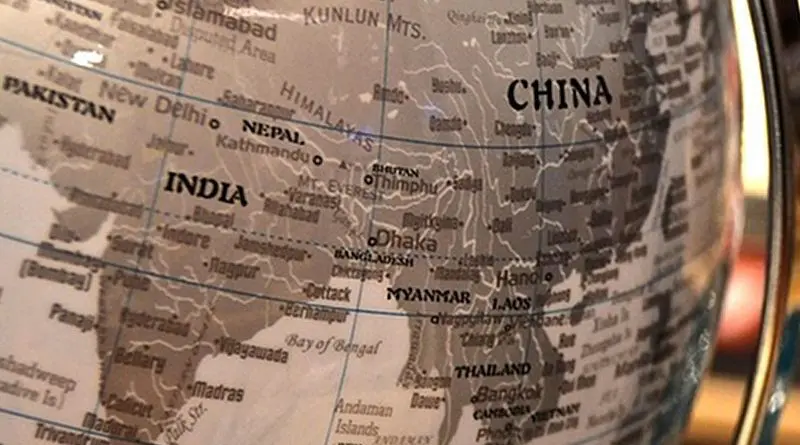The China Challenge: Contending Discourses On International Order – Analysis
By RSIS
Amidst ongoing global debate about how best to engage China is a more fundamental contestation over what kind of international order is emerging in the coming years. To this end, realist, liberal and constructivist assumptions of political behaviour are worth revisiting to make sense of existing political dynamics that shape how states (especially smaller ones) seek to relate with Beijing.
By Benjamin Ho*
The recent conclusion of the Asia-Pacific Economic Cooperation (APEC) Summit in Papua New Guinea witnessed for the first time in the grouping’s history, a non-issuance of a joint statement. This reflects the existence of deeper – and possibly more fundamental – divisions over how best to resolve the ongoing trade war between the United States and China. As Singapore’s Prime Minister Lee Hsien Loong noted, any fallout between both superpowers in a protracted trade war would result in considerable loss – not just to Washington and Beijing – but also to countries like Singapore and others in the region.
Indeed, the past few years have witnessed substantial discussion among scholarly circles over what a rules-based regional (or international) order entail and the extent to which China subscribes to the norms and patterns of such existing arrangements. To this end, I argue that what is at stake lies more foundational assumptions over what is the ultimate decisive factor(s) in determining political behaviour, namely, material power, the international system, or ideational (or cultural) influences.
Realist School: Balance of Power
Most practitioners of international politics would insist on the importance of maintaining a balance of power among big powers however precarious and difficult it might be. This is what many states over the world would prefer as it would allow them to maximise their policy options instead of being forced to choose.
In Asia, it is argued that China, by virtue of its size and population, has created a “fundamental asymmetry” between itself and other countries in the region. In this view, China’s growing might would necessarily be viewed as a challenge to the status quo – regardless of what its leaders say over its intentions about peaceful development.
More specifically, the rise of China – and its territorial ambitions – are seen as representing a challenge to regional stability and consequently posing problems to the national interests of a number of countries in the region, which historically is tied to a Western-led liberal order.
In this view, a Chinese-dominated international order is seen as one that purports to attempt to revise the accepted norms of international conduct and thus fundamentally at odds with the national interests of many states.
Internationalist Position: New Rules for Changing Times
The second position is evinced by those who perceive the existing international order as fundamentally problematic and in need of change, particularly to reflect the growing interests and importance that countries from the global South ought to play in international politics. Indeed, they see the present arrangements of international power as privileging the West and are designed to perpetuate the interests of the United States and other Western powers.
Given the global economic crisis of the past decade, the benevolent character of the West is called into question and its ability to prosper others increasingly disputed. Indeed, such a view would perceive the West in decline and the rise of the East (and China) as an undisputed global reality.
Hence, the rise of China is seen as an opportunity to relook the rules of the international system and consequently the need to reexamine states’ national interests to ensure they cohere with a new reality whereby Western power and influence is diminished and the East (as represented by China) is in ascendance.
Constructivist Position: View From History
A third position which finds considerable sympathy among historians and cultural studies’ experts maintains that what is needed in perceiving the rise of China is the appreciation of its history and culture. In this view, what is needed is for our analysis to go beyond power and economic indicators and to instead focus on historical and ideational forces in order to understand Beijing’s modern political behaviour.
In this respect, one might say that there exists a fundamental cleavage between Western conceptions and Chinese conceptions of international order.
Within China, there are also growing numbers of Chinese scholars who attempt to articulate a Chinese worldview and approach to international relations, taking into account the repository of ideas found in indigenous Chinese traditions and its history. Such approaches would maintain that for one to understand how Chinese leaders think, there is a need to deeply embed oneself in the habits and practices of Chinese culture.
This might be seen as a middle ground compared to the earlier two frameworks (realist and internationalist). Hence, China’s rise is viewed primarily within a comparative framework vis-à-vis the West in which both challenges and opportunities exist as a result of deeper, more foundational differences that exist between Western and Chinese political thought.
Future of Indo-Pacific Regional Order
From the above, I argue that at the heart of the debates on how best to engage with China is a contestation over which of the above three positions, and their associated assumptions, are believed to be most decisive in the conduct of diplomatic relations with China.
The realist position tends to emphasise the importance of geopolitical forces, the internationalist position places weight on economic relations while the constructivist position takes ideational and cultural factors as its starting points. As the outcome of the APEC Summit has shown, the debate over the future of regional and international order remains pointedly contentious.
*Benjamin Ho is an Associate Research Fellow with the China Programme of the S. Rajaratnam School of International Studies (RSIS), Nanyang Technological University (NTU), Singapore. He is also a PhD candidate at the London School of Economics and Political Science.

